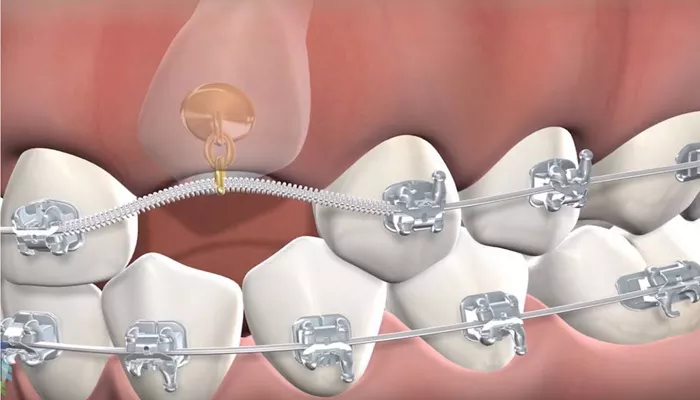Impacted canines are a common dental issue that occurs when the canine teeth do not properly erupt through the gums.
This condition can lead to various complications, including misalignment of teeth, dental crowding, and potential damage to adjacent teeth. Orthodontic treatment is often necessary to address impacted canines, and braces are typically used as part of this process. Understanding how long braces need to be worn for impacted canines is crucial for patients and their families. This article will explore the factors influencing the duration of brace wear, provide a detailed timeline, and discuss the overall treatment process.
What Are Impacted Canines?
Impacted canines occur when the upper or lower canine teeth fail to emerge properly. This can happen for several reasons, including:
Insufficient space in the dental arch.
Abnormal positioning of the tooth bud.
Genetic factors that influence tooth development.
Impacted canines are most commonly seen in adolescents, as this is when these teeth typically emerge. If left untreated, impacted canines can lead to complications such as:
- Crowding of surrounding teeth
- Cysts or tumors
- Infection or decay
Why Are Braces Needed?
Braces are used to correct the alignment of teeth and help guide impacted canines into their proper position. They apply gentle pressure over time, which encourages teeth to move into the desired alignment.
The duration of wearing braces for impacted canines varies based on several factors.
Factors Influencing Wearing Time
The length of time a patient needs to wear braces for impacted canines depends on various factors:
Age of the Patient: Younger patients typically respond better to orthodontic treatment because their jawbones are still growing and more adaptable.
Severity of Impaction: The more severely impacted the canine is, the longer it may take to reposition it correctly.
Type of Braces Used: Different types of braces (metal, ceramic, lingual) may have varying effectiveness and treatment durations.
Patient Compliance: Adhering to orthodontist instructions regarding care and maintenance of braces significantly affects treatment duration.
Specific Wearing Time for Impacted Canine Braces
The typical duration for wearing braces for impacted canines ranges from 6 months to 2 years, depending on individual circumstances. Below is a detailed breakdown:
1. Initial Consultation (1-2 Visits)
During the initial consultation, an orthodontist will evaluate the patient’s dental health through X-rays and visual examinations. This phase usually takes about one month.
2. Treatment Planning (1 Month)
After diagnosis, a personalized treatment plan is created. This includes determining the type of braces needed and estimating how long they will be worn.
3. Active Treatment Phase (6 Months to 2 Years)
This is the primary phase where braces are actively working on aligning the teeth:
Mild Cases: For mild impaction, braces may need to be worn for approximately 6 to 12 months.
Moderate Cases: If the impaction is moderate, wearing time may extend to 12 to 18 months.
Severe Cases: In cases where the canine is severely impacted or if there are additional orthodontic issues present, treatment may last from 18 months up to 2 years.
4. Retention Phase (6 Months to 2 Years)
After active treatment, a retention phase begins where patients wear retainers to maintain their new tooth positions:
Patients typically wear retainers full-time for about 6 months, followed by nighttime wear for an additional 6 months to 2 years, depending on individual needs.
The Orthodontic Process
Step-by-Step Overview
Consultation and Diagnosis
Initial visit with X-rays.
Discussion of treatment options.
Placement of Braces
Braces are attached during an appointment that lasts about 1-2 hours.
Regular Adjustments
Patients return every 4-8 weeks for adjustments.
Adjustments involve tightening or changing wires and checking progress.
Monitoring Progress
Continuous evaluation ensures that teeth are moving as planned.
Additional procedures may be necessary if progress stalls.
Removal of Braces
Once alignment is achieved, braces are removed in a quick appointment.
Patients receive retainers immediately after removal.
Conclusion
Wearing braces for impacted canines is a crucial step in ensuring proper dental health and alignment. The duration varies widely based on individual circumstances but generally ranges from 6 months to 2 years during active treatment, followed by a retention phase that helps maintain results. Regular visits to an orthodontist and adherence to their recommendations are essential for successful outcomes.
Understanding this timeline allows patients and their families to prepare adequately for what lies ahead in their orthodontic journey.
With patience and commitment, achieving a healthy smile with properly aligned teeth is within reach for those dealing with impacted canines.
Related topics:

